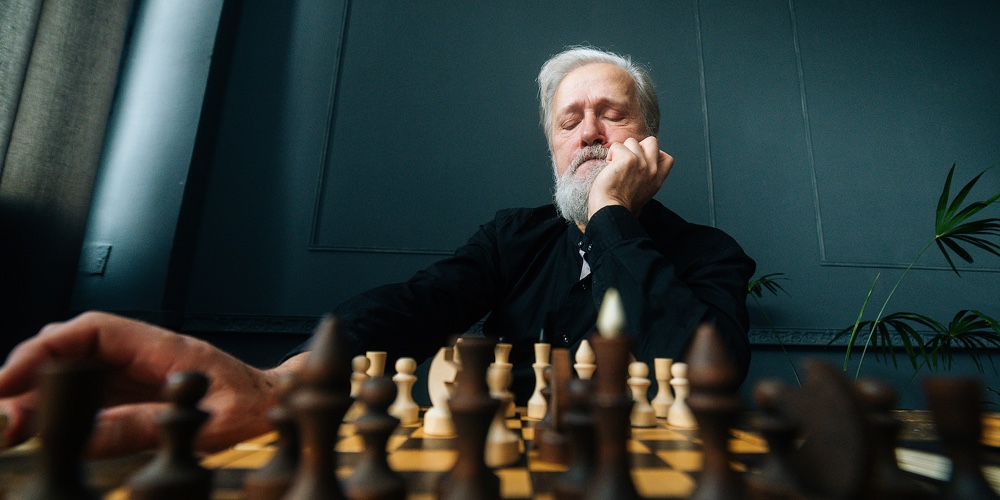Chess with the old man

“You really should play more chess.”
My dad said this to me a lot when I was a kid, every time he saw me playing endless games of Pac-Man on my good ol’ Atari 2600 game console about a million years ago.
Most of the time, I’d ignore him. My justification for my indifference was simple; chess was played by stodgy old men with nothing better to do, and awkward adolescents who had been consigned to the lowest possible castes of their respective middle school societies.
As a red-headed, freckle-faced kid with coke-bottle glasses and the athletic ability of a celery stalk, I couldn’t afford any further torment from the cool kids at school, so I ignored chess and the father who offered it.
That is, until the day the Atari died.
I was moments away from a new high score in Pac-Man when—BLIP—the screen went black and quiet. No amount of shaking or screaming could revive the dead microchips in my hands.
And into the Pac-Man funeral chamber strode my dad with a chess box under his arm.
(He denies he had anything to do with the Atari’s untimely death. I believe otherwise, but I digress…)
Tired and beaten, I finally agreed to play his stupid game, just to get him off my back.
He read the instructions to me as he set up the chess board. I, of course, tuned him out after four seconds. Yeah, yeah: move pawns, capture pieces, take the king. I was a pimply pre-teen with lighting-quick reflexes, a master at making a voracious yellow circle binge-eat its way through a maze filled with homicidal ghosts, so his plodding and painfully analog game would be child’s play.
Ten minutes later, my pride was as empty as my side of the board as dad effortlessly checkmated my king. I was stunned. I had been beaten, badly outclassed by the old man and his stupid game.
But he never gloated, never rubbed it in. He just smiled and hoped for a few more minutes with his only son.
And he got another game out of it. I could not, should not, would not be vanquished again, I thought.
Ten minutes later, the same result: fallen king, wounded pride, and another game.
As day gave way to night, a strange thing happened. I forgot about Pac-Man and Atari and focused simply on the challenge before me. Ten games and ten defeats later, I shocked myself by inviting dad to play again tomorrow after he got home from work.
What had started as a game, a father, and time avoided turned into time cherished.
Dad and I would sit for hours examining the board, trying to pry victory from its sixty-four squares. We didn’t say much. We didn’t really have to. We would occasionally glance at one another to compliment a good move, question an unconventional strategy, or simply appreciate the man we finally saw in the other.
With chess, my dad taught me how to plan to succeed, not just blindly react to a temporary crisis. To never underestimate my opponent. To understand that the deepest of lessons are often taught in the simplest of places.
My dad taught me these and many other lessons with a gentle smile and unyielding patience.
I don’t know what this has to do with credit unions in general, or your work in specific. But I’m not necessarily writing this for you. I’m writing this for my dad.
I’m submitting this on his 76th birthday, as he recovers from COVID-related double pneumonia that should have killed him.
That near-death experience, combined with his advancing Alzheimers and a litany of other serious health issues, make chess more of a challenge for him than ever before. Even as I write this, his condition is tenuous at best. I don’t know how many more games he has left to play.
I don’t see him as often as I should, separated as we are by the distance and distractions that conspire to undo the lessons learned through that old chessboard.
But I wanted him to know that I still remember those games of chess, even though he may not for much longer.
And I wanted him to know that my heart longs for the days when a lasting bond was forged over a simple game that beckons a father and son back home.
I really should play more chess.





